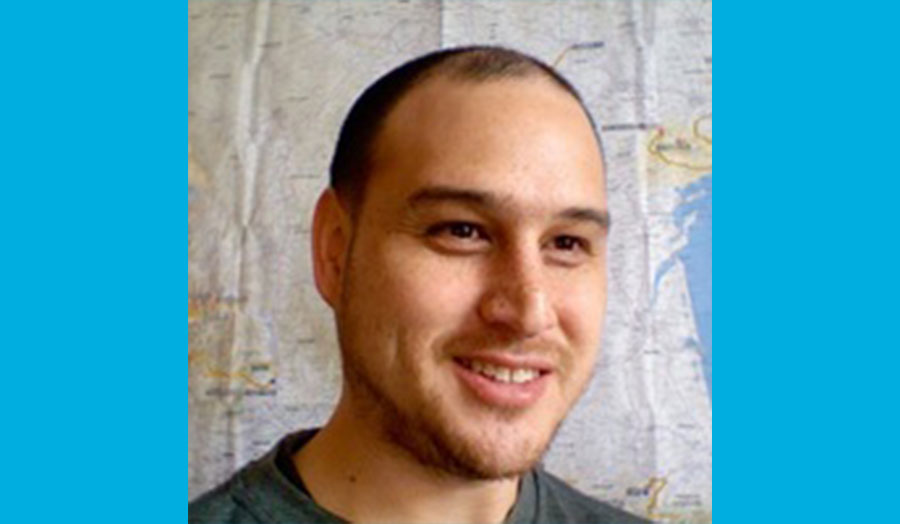Apply for this course
Please select when you would like to start:
If you're a UK applicant wanting to study full-time starting in September, you must apply via UCAS unless otherwise specified. If you're an international applicant wanting to study full-time, you can choose to apply via UCAS or directly to the University.
If you're applying for part-time study, you should apply directly to the University. If you require a Student visa, please be aware that you will not be able to study as a part-time student at undergraduate level.
Why study this course?
In one of the most culturally diverse and socially complex cities in the world, you'll be introduced to ideas on globalisation, social inequality, identity, and ethnicity and race. As you prepare for social and public policy careers in the private, public or voluntary sectors, you'll learn skills to address multidisciplinary concerns relevant to a variety of public issues and have opportunities to take up a work placement and to study in other European countries. By the end of this Sociology degree you'll be qualified to apply sociological perspectives, concepts and research methods to the most challenging social issues facing us today.
Study sociology practically and in a modern context
The emphasis of this course is on the applied and practical nature of sociology, and a variety of teaching and learning methods are used to deliver a course that is both stimulating and relevant
Learn in a way that suits you
A variety of teaching and learning methods are used to deliver a course that is both stimulating and relevant
Gain knowledge of sociology in a real-world context
By the end of this degree you'll be qualified to apply sociological perspectives, concepts and research methods to the most challenging social issues facing us today
Course modules
The modules listed below are for the academic year 2024/25 and represent the course modules at this time. Modules and module details (including, but not limited to, location and time) are subject to change over time.
Year* 1 modules
Year 2 modules
Year 3 modules
Constructing Modern Societies
This module currently runs:summer studies - Thursday morning
autumn semester - Friday afternoon
(core, 15 credits)
This module introduces students to fundamental and essential concepts and theories of sociological thought and practice. It does this by exploring foundational thinkers and ideas of sociology, both in the historical context of their development and contemporary applications. The discipline of sociology is often said to be a discussion of modern times (Giddens), but what is meant by ‘modern’ and 'modernity’? What are the various transformations referred to by these terms and how have they shaped our current society, locally and globally? By inquiring into these and related questions students will be provided with a grounding in the key processes of modernity that informed and continue to influence contemporary life. Insofar as the discipline of sociology itself emerged through the investigation of these processes, students will also be introduced to canonical figures, theories and concepts of sociology.
Read full detailsGlobal Environmental (In)Justice
This module currently runs:autumn semester - Tuesday afternoon
(core, 15 credits)
Climate change and climate fuelled-disasters are the number one driver of the internal displacement of people, forcing an estimated 20 million people from their homes to seek refuge within the border of their own country over the past decade (Oxfam. 2019). While it is overwhelmingly poor countries that are affected, both by climate change and by the displacement and migration of millions of people, climate change is largely caused by the actions of affluent countries in the global north. This is one of many examples of the ways in which climate and environmental change reflect and reinforce existing global inequalities and is key to your sociological understanding of the global world in which we live. In this module, you will look at the evidence for climate change, at the key causes of climate change and at the unequal impact of climate change on communities across the world. The module looks at how the ways in which our food is produced impacts on the environment and displaces poor and rural communities across the world. You will look at case study examples of how climate and environmental change are the key drivers of displacement and migration and at the impact of resource extraction and tourism on climate change and the environment. In the module, you will also look at the policies put in place by institutions globally to address climate change and at the growth of movements for global environmental justice across the world.
Oxfam (2019) Forced from Home. Climate-fuelled displacement. Oxfam Media Briefing.
The aims of the modules are to:
● develop an understanding of the scale and key causes of climate change
● develop and demonstrate an understanding of the inequalities in relation to both the causes and the consequences of climate change
● collect and analyse information to indicate how key issues such as migration or food production are impacted by and impact on climate change
● develop knowledge of some key policy responses developed by institutions globally to address the problems of global climate change
Global Inequalities
This module currently runs:spring semester - Tuesday afternoon
(core, 15 credits)
We live in an increasingly global world, an increasingly globally connected and
interdependent world, economically, politically and culturally. We also live in an increasingly unequal world. In this module, you will look at the recent growth of inequalities globally both between and within countries and at how economic, political and cultural globalisation has played a key role in producing these growing inequalities.
The module will help you understand the global world in which we live, how it works and how different arguments have in turn celebrated and been critical of recent globalisation. Understanding the global world in which we live is key to developing your sociological imagination. You will examine the scale, nature, causes and consequences of global inequalities both generally and through case study examples of migration, climate change, food production, tourism, fashion and technology.
The aims of the module are to:
● develop an understanding and comprehension of the global world economically, politically and culturally
● develop and demonstrate an understanding and an ability to be critical of different viewpoints
● collect and analyse data to highlight the scale and nature of global inequalities between and within countries
● understand how migration, climate change and the food, clothes and technology that we consume reflect and reproduce global inequalities
Introducing Social Policy
This module currently runs:spring semester - Friday morning
(core, 15 credits)
This module aims to give the student a solid understanding of what social policy is, and of what its links to sociology are. This module highlights key social policy concerns, such as housing, poverty, education, health care and disability, and it also introduces the student to the four pillars of welfare provision. This module also scrutinises different ideological approaches to (the) welfare (state). In order to do this, a historical overview of social policy is given, starting from WWII. This module also highlights some of the challenges facing and shaping social policy today. Finally, it equips the student with practical knowledge of where they can find reputable sources when investigating social policy.
Read full detailsProtest, Justice and Social Change
This module currently runs:spring semester - Tuesday morning
(core, 15 credits)
This module addresses the question of how societies change and who changes them. It focuses on the concepts of social history such as progress, development, and social evolution. It also addresses the ongoing debate of whether change is driven by individual agency or larger societal structures. In addition, the course examines the role of ideas and ideologies in shaping social change, focusing on concepts like freedom, equality, and justice. It discusses real world examples of social protests like anti-war, women's rights, and pro-life movements, as well as the study of how these movements – like the civil rights movement, Black Lives Matter, #MeToo, and Extinction Rebellion – form and spread. Lastly, the course covers the topic of revolutions and their impact on society by examining past revolutions – from the French Revolution to the Arab Spring – and the factors that contribute to their success or failure.
Read full detailsResearching Social Life
This module currently runs:autumn semester - Tuesday morning
summer studies - Tuesday morning
(core, 15 credits)
This module provides the foundation for an explicit, clear focus on social research throughout Sociology and related degrees, in addition to supporting students to acquire understanding of and skills in academic literacy. Some methodological principles and perspectives for effective social research are explained and also illustrated through exploration of research case studies. It will additionally provide experience in using the vast array of text, visual and statistical primary documentary sources and their interpretation for research. Research as a process will be examined including main empirical research approaches, the formulation and development of research questions and social, ethical and political contexts of research practice.
Read full detailsSocial Divisions
This module currently runs:autumn semester - Friday morning
(core, 15 credits)
This module introduces the students to social divisions, focussing on the UK in general, and on England and London in particular. This module scrutinises some of the regular patterns of division in society, and the advantages, disadvantages, and inequality that these divisions may lead to. The concept of ‘stratification’ is used to discover the hierarchical order of some of the social groupings, such as gender, sexuality, ‘race’/ethnicity, (dis)ability and social class. The module explores the inequalities amongst these social groupings on many levels, such as education, health, wealth and housing.
Read full detailsSociological Imagination
This module currently runs:spring semester - Friday afternoon
(core, 15 credits)
This module will provide you with the necessary intellectual skills for developing your sociological imagination. Week by week you will encounter a range of important insights into the social world that will enable you to identify, apply and evaluate sociological approaches, concepts and debates relating to the everyday situations.
The overall aim of the module is to allow you to see how sociology requires that we make the familiar world appear strange in order to see the workings of society below surface appearances. ‘Sociological Imagination’ will provide you with an introduction to constructing sociological arguments, thinking critically and assessing sociological evidence. The module discussions will allow you to explore a range of applications of sociological insights and theories in order to move beyond common-sense interpretations of society and to understand why ‘personal troubles’ must be grasped in relation to ‘public issues’.
Each week the module visits core sociological contexts including social class, inequality and exclusion; the city and urban sociology; power and surveillance; gender and bodies; popular culture and the arts; unconscious social forces; and religion and spirituality.
Read full detailsQualitative Social Research
This module currently runs:spring semester - Thursday afternoon
(core, 15 credits)
This module will analyse the use and challenges of qualitative research in sociology. It will start with the wide exploration of the theoretical underpinnings of qualitative research, including its strengths and limitations, as well as the various qualitative research methods. Further, this module will analyse the main skill set essential for a qualitative researcher, as well as the potential difficulties that might occur, i.e. bias. The last part of this module will look at NVivo, the practical tool for qualitative data analysis.
Read full detailsQuantitative Social Research
This module currently runs:autumn semester - Thursday afternoon
(core, 15 credits)
This module analyses the research process in relation to quantitative methodologies from the formulation of a research problem through appropriate collection and analysis of data to the writing-up of results in the form of a research report. The module sets out the research contexts in which this methodology is appropriate and discusses the skills and limitations associated with surveys as an important research method in sociology. At the same time, the module introduces students to British Social attitudes as one of the main quantitative data sets on social attitudes in the UK.
Read full detailsSelf and Society
This module currently runs:autumn semester - Friday morning
(core, 15 credits)
This module introduces students to some of the key sociological approaches used to explore and explain the sociological notion of ‘self’. This will involve an examination of a range of major 20th century sociological thinkers on the nature of the social construction of self – eg. Mead, Goffman – and it’s constrains – e.g. Marx and Parsons. The intention is to use some of the major sociological theorists and apply their insights into current concerns with the ‘project’ of self and identity. That is, to examine how much choice we have in becoming who we are.
Read full detailsSociology of Everyday Life
This module currently runs:spring semester - Friday morning
(core, 15 credits)
In this module you will learn to apply sociological understanding and methodology of observing and explaining the everyday life: its routines, rhythms and those aspects of social life that we consider familiar and known. You will be able to see the strange in the familiar, learning the practice of sociological thinking. You will be asked to suspend any taken for granted assumptions about the rules and routines of social life, and look at everyday behaviour from the perspective of an external observer. You will learn how everyday life has come to be theorised and understood by key sociological thinkers. Alongside this, you will learn about sociological approaches to topics such as home, eating, shopping, emotions, embarrassment, shame and romance.
Read full detailsUnderstanding Gender and Sexuality
This module currently runs:spring semester - Thursday morning
(core, 15 credits)
This module introduces students to the key concepts and theories relating to the social construction of gender and sexuality and their application to a range of social sectors and issues in the UK and abroad. This module addresses the ways in which gender and sexuality are both constitutive of the social and are established through social structures, institutions and interactions. Drawing on intersectional approach, this module will explain the ways in which theories of gender and sexuality inform the sociological study of the family, work, health, education, crime, the welfare state and politics, media and the body. To this end, the approach to gender and sexual discrimination and inequalities will be made in connection to other forms of social identity, including class, race and ethnicity.
The aims of the module are to:
• Introduce and critically analyse key concepts in the sociological theories of gender and sexuality;
• Understand how the notions of gender and sexuality impact all levels of social structures, social relations and social identities;
• Address the intersections between gender, sexuality and other forms of social identity and difference, including class, race, ethnicity.
• Consider the conceptual framework for the persistence of discrimination and inequalities on the basis of gender and sexual orientation.
Understanding Racism and Ethnicity
This module currently runs:autumn semester - Friday afternoon
(core, 15 credits)
Accusations of racism and ethnic discrimination are seemingly everywhere, in the workplace, in the streets, in everyday interactions. You will wonder what is exactly meant by racism and ethnicity, whether this are beliefs about racial and ethnic subordination or it is rather found in social interactions. This module addresses various theories of racism and ethnic discrimination, and critically assess the challenges revolving around the political and social hostile environment against racialised minorities in specific, socio-political contexts in the UK. This module goes beyond the Eurocentric ideas that have dominated sociological thinking and will apply more-diverse and -inclusive theoretical frameworks to the interconnectedness among issues of race, ethnicity, social class, gender, age, drawing on the principles of social justice and empowerment.
Aims. This module will provide key skills and knowledge that will enable you to:
• Analyse critically key concepts including racism and ethnicity as well anti-racism, multiculturalism, Islamophobia in order to develop an awareness of their contested nature.
• Look at these issues in the hostile environment against racialised groups, exploring the meanings ascribed to these terms, historical origins and key examples where these issues have been or remain important in shaping contemporary British society.
• Consider the impact of racist and ethnic discrimination on specific groups, including women, religious and ethnic groups.
Living on the Margins
This module currently runs:spring semester - Monday afternoon
(option, 15 credits)
This module draws on previous modules relating to inequality and social division. The emphasis is on various marginalised groups in society, including, but not limited to, families with children, people with disabilities, ‘race’/ethnicity, elderly, and members of the LGBTQI+ community. It looks into various areas of life where these societal groups are more at risk than others, such as increased health and wealth inequalities, and inequalities in education. It also looks into various policies aimed at supporting these groups in order to achieve a more equal society. Whilst focus is mainly on marginalised groups in London, it equips the students with skills and knowledge on marginalised social groups that can be applied on national level as well.
Read full detailsResearching Diversities & Inequalities
This module currently runs:spring semester - Tuesday afternoon
(option, 15 credits)
In order to understand and challenge inequalities, it is important to have good research evidence. In this module, a selected group of London Met academics will present their own, original research on key social issues of inequalities and diversities on global, national and local contexts.
This module is led by the Global Diversities and Inequalities Research Centre and aims to engage students with the innovative research undertaken by the teaching team.
In so doing, this module will also help students to explore particular case studies, both globally and locally, in order to understand persistent inequalities through the intersectional lens of gender, class, ethnicity, sexuality, religion and power relations.
This module aims to:
1. use original, high quality research to explain how inequalities are experienced and resisted across diverse contexts
2. explore the impact of inequality and social exclusion for particular groups of people within particular geographical and socio-cultural settings
3. examine how these issues can be researched using specific data gathering and analysis techniques
Read full detailsResistance, Creativity and Joy in the Capital
This module currently runs:spring semester - Monday morning
(option, 15 credits)
This module will explore the relationship between London and the people of Africa and the Caribbean, unpacking the socio-economic and political factors that shaped the lives and subcultures often ‘hidden’ within London.
In doing so, it seeks to develop an understanding of the complexities in the lives of those in and around the capital from the African and Caribbean diaspora, whilst also embracing the joys of Blackness that are often undocumented and under narrated which include topics such as music, resistance, migration, and LGBTQIA+ lives.
Students will:
1. Explore how Black British history is woven into the cultural, economic, political and social life of the Capital City.
2. Examine how social, historical and political factors have shaped the experiences of African and Caribbean people in London.
3. Begin constructing their decolonial and critical thinking skills
4. Explore the contemporary cultural production, creativity, resistance, and joy in first, second and third generation African and Caribbean lives in and around London.
Read full detailsSociety at the End of Days
(option, 15 credits)Many are those who fear that the end of the world and/or life as we know it is nigh. But what is meant by this, what is driving these views, and what impact does the spectre of society’s end have on us today, or should? In this module we will explore several versions of ‘end times’, such as: religious stories of apocalypse; the threat of catastrophic nuclear war (‘mutually assured destruction’); climate devastation via global warming; the ascendency of ‘artificial intelligence’; philosophical nihilism and socio-political theories about the ‘end of history’. Our aim will be to see what can be learnt by investigating how humans have variably imagined the end(s) of society – a pastime that has become increasingly prevalent since the Covid-19 pandemic. What do these stories and theories tell us about ourselves, about our hopes/fears for the future and what we hold sacred? What actions do they prompt – or perhaps more worryingly fail to – and why?
Sociology and Current Affairs
This module currently runs:autumn semester - Tuesday morning
(option, 15 credits)
In this module you will learn to apply a range of contemporary social theories and concepts to the understanding of current affairs. The module will provide you with the conceptual tools to critically assess representations of social groups and events in virtual and print media and other portrayals of contemporary social life, political events, and social issues. The module will allow you to develop a conceptual toolkit drawn from semiotics, phenomenology, post-structuralism, among others, to explore representations of difference and power and to appreciate how they acquire ‘newsworthiness’. You will learn how to view current affairs – ranging from coverage of debates on global poverty and social exclusion to migration and terrorism – through a sociological lens in order to look beyond the spectacle or apparent banality of the news.
The module will contribute to the development of your practical skills in critical analysis by exploring [a] the way that social issues are represented for public consumption; and [b] the value of applying social theory to achieve in-depth interpretations of events and roles of social actors. In an age of multiple media platforms, the ‘quick news fix’ of social media, and the proliferation of fake news, ‘Sociology and Current Affairs’ will encourage you to develop and use innovative and imaginative approaches to gain and communicate better understandings of the complexity of the world around us.
Read full detailsYouth in Modern Society: Consumers, Deviants and Rebels
This module currently runs:autumn semester - Thursday morning
(option, 15 credits)
In the current period a plethora of youth resistance actions, movements and subcultures
have developed in response to socio-economic deprivation on a global scale. From
youth riots to graffiti writers in the UK to the politicised Latin Kings and Queens gang in New York, young people are developing cultural, political and deviant responses to their dispossession and exclusion. In this module we will focus on case-studies and theories of youth social, cultural and deviant resistance over time. Questions of race/ethnicity, class, gender and age will be addressed as we explore the e meanings and representations of youth reactions to industrial and post-industrial societies.
This is a an interdisciplinary module which combines the perspectives from sociology, ciminology and cultural studies to address contemporary youth experience.
Read full detailsConversations in Sociological Thought
(core, 15 credits)This module addresses the decolonial encounter in contemporary sociology. Following an initial revisiting of the foundations of social theory, the module invites you to critically explore sociology ‘beyond the Western Canon’ and its roots in Eurocentrism to develop a decolonised sociological imagination. The aim of the module is to develop an ongoing conversation in contemporary social thought rather than viewing contesting perspectives as an insurmountable challenge. In short, you will explore the perceived limits of Eurocentrism and assess the need to rethink the basis of sociology’s conceptual knowledge and vocabulary.
You will reconsider enduring sociological problems such as ‘alienation’ and ‘anomie’ alongside the work of theorists such as Frantz Fanon and other postcolonial writers; explore the biopolitical disciplining of the social body via a conversation between the ideas of Michel Foucault and Achille Mbembe; assess the continued relevance of Simone de Beauvoir’s feminist theory compared to the critical intersectionality of Patricia Hill Collins.
‘Conversations in Sociological Thought’ will enable you to reassess the value of the Eurocentric traditions of sociology by addressing critical questions at the core of classical and contemporary social thought through a reflexive exploration of intersubjectivity, bodily practice, race, and gender in the contexts of past and contemporary social experience.
Living Theory
(core, 15 credits)In this module we will explore and apply important theories and concepts in contemporary social theory for the purpose of enhancing our understanding of the world we live in. Through the work of contemporary social thinkers, the module will examine and test out the ways in which social theories and concepts are ‘live’ – not dead or irrelevant abstractions of little consequence, but a living and crucial part of how people understand reality and navigate its vicissitudes. This will support your learning in other modules, and post-university, by deepening your understanding of key theoretical frameworks for analysing social phenomena and enhancing your ability to apply them.
Sociology Dissertation
This module currently runs:all year (September start) - Tuesday afternoon
(core, 30 credits)
Drawing on the knowledge, research and analytical skills gained throughout their programme of study, students in this module produce a dissertation on a sociological topic of their choice. With guidance from their supervisor and module lecturers, students devise their own research project, plan a course of action, conduct in-depth research, review and critically analyse literature and data, culminating in an 8000 word document.
Read full detailsEmpowering London: Working within the Community
This module currently runs:all year (September start) - Friday morning
all year (September start) - Wednesday afternoon
(option, 15 credits)
A new innovative module combining work based learning and a radical model of critical and transformative citizenship. This module has been developed to allow you to work intensively with a London community project/organisation in order to identify (in partnership with them) a challenge they are faced with and work towards positively addressing this challenge This innovative module is an exciting opportunity to work at a grass-roots level to effect change and to learn about the key issues currently affecting London and other large cities.
We live in the sixth wealthiest economy in the world, and London produces 22% of all Gross Domestic Product (GDP). However, we also have a significant problem with inequalities and wealth distribution. The current poverty rate in the UK is 22% and in London this is even higher at 28%.
As of July 2020 there have been 79,437 violent crimes in the last year resulting in injury in London and 152 homicides. Included within this, there has been a steady increase in incidents of serious youth violence, with latest figures showing 8,151 young victims. This is despite concerted efforts to better support young people. The COVID-19 lockdown raised awareness of the prevalence of domestic violence, however, even before lockdown London was seeing a steady increase with reported cases rising from 75,159 in April 2016 to 91,226 in June 2020.
London's health inequalities are created by social, geographical and biological factors. The difference between highest and lowest healthy life expectancy in areas of London is 15.7 years based on Public Health England data. Contributing factors include infant mortality, excess weight, physical activity, smoking, homelessness and disease.
We are facing a global climate and ecological crisis, and London is a case in point. As the capital’s population grows to 11 million by 2050, addressing problems of polluted air, water stress, poor access to public greenspace, and the effects of climate change, such as overheating and flooding, will become increasingly urgent. London therefore has ambitious targets to meet WHO air quality guidelines by 2030, become carbon neutral by 2050, and become half greenspace and have 12% more tree cover by 2050.
However, at the same time the scope for local authorities to address these issues has been reduced by heavy pressures of austerity and a neo-liberal policy agenda. Many local community voluntary organisations are left with a vacuum to compensate for.
As a university and ‘anchor institution’ to the London economy, we believe it is our role to help ‘Empowering London’. This module has been designed to empower you as our student by learning about some of the challenges facing our city and to contribute to addressing this via work based learning. Our fundamental aim is to help you become a values driven graduate who can make a positive difference to society. This module will provide you with some of the tools to achieve this goal.
The module is designed to enhance your wider personal and professional development. It will facilitate application and progression of knowledge gained via your studies and wider life experience. The module includes values-driven, professional training and work experience to assist in preparing you for your individual future career. Through work based practice, you will positively contribute to a key part of the University’s Strategic agenda, addressing current social and economic issues facing London communities. This unique module allows you to be challenged by contributing to current, real world projects, working with the University and students from other professional disciplines to make a positive difference to society.
The initial stages of this 15 credit, year-long module will introduce you to a range of professional skills and techniques, including: reflective self-assessment; preparation for employment as a values-driven graduate within inclusive work environments; becoming an ethical leader; being a critical employee and developing approaches for co-operative and collaborative working.
You will then be introduced to employment experience opportunities supporting organisations and/or individuals in the local community. This could include working with communities and organisations towards programmes aiming to address collective identity and civic agency in neighbourhoods. The London Met Small Business and Charities and Social Enterprise Clinics, will additionally provide suitable opportunities for placements. You will work individually or in teams, in partnership with community institutions to support the activities of one of London Met’s strategic priorities - the Empowering London initiative. Your practice will positively contribute to addressing the challenges facing London which impact everyone’s lives.
The module has been co-created with students and ongoing feedback will be sought from a range of students on an ongoing basis.
The module aims to enable you to:
● Effectively express and understand your current skills and abilities in relation to your career values and goals
● Practically apply the knowledge gained through your course programme to a work/neighbourhood environment
● Make a positive contribution to the challenges of current social and economic issues facing the University’s local communities and consider these from national and global perspectives
● Gaining unique insight of current challenges facing cities in the areas of social wealth; the environment; discrimination; health; poverty and deprivation and crime and partner with community institution to design potential solutions
● Gain understanding and direct experience of the graduate level skills, knowledge and insights required for inclusive practice and problem resolution within institutions to enable you to become an inclusive leader in society
● Recognise your personal and professional development through your work based practice and how to apply the experience and knowledge gain to your future goals
Gender Politics
(option, 15 credits)This module explores the ways in which gender and sexual inequalities and violence reproduce through policies and practices impacting social structures and institutions, such as family, work environment, health system, education, criminal law, the welfare state, and media. Drawing on transnational and intersectional perspectives, this module looks to how the lack of gender perspective exacerbates inequalities and dynamics of violence in several contexts, such as education, migration, media and health. To this end, this module traces feminist debates concerning women’s and men’s role and under-representation in politics, policies and practices perpetuating dynamics of violence against women (domestic violence, femicide) and/or the criminalisation of homosexuals in several hotspots. With a focus on the global, this module offers new perspectives on the political process, both formal and informal, impacting women and sexual minorities and sheds light on the way that gender power is unevenly distributed in global society.
The aims of the module are to:
- Critically analyse how gender and sexual inequalities reproduce in policies and practices in global hotspots.
- Address how discriminatory policies and practices impact all spheres of life, including family, work environment, health system, education, criminal law, the welfare state, and media in several global settings.
- Understand how under-representation of women and sexual minorities in politics perpetuate dynamics of violence against women and the criminalisation of homosexuals in several hotspots.
- Consider the intersections between gender and sexuality and class, racial and ethnic inequalities in the study of gender perspective in politics.
Homelessness and Housing Policy
This module currently runs:autumn semester - Thursday morning
(option, 15 credits)
In this module, you will look at one of the most pressing social issues in the UK today – that of the cost and shortage of housing and of the shortage of affordable housing in particular. Living in a safe, comfortable and secure home is a human right, essential to our wellbeing. However, it is widely agreed that we have a housing crisis in the UK. This crisis is perhaps especially acute in London but it is a crisis which affects much of the country. Over the past ten years, the cost of housing, including rents in the private rented sector have spiralled while the number of social rented homes has continued to fall and the numbers of people who are homeless or living in temporary accommodation has risen. In this module, you will look at the scale and at the underlying causes of the housing crisis in the UK. You will look at the shortage of affordable housing, the growth of the private rented sector and at the collapse of social rented housing. You will also look at how access to housing and the housing market reflects wider social divisions in terms of class, ethnicity and gender. The module places housing and housing policy at the core of our understanding of society, social divisions and social policy.
The module focuses on housing policy and on social housing, looking at the history of social housing in the UK and at changes in housing policy since the 1980s. The module also looks at the growth of homelessness and at the underlying causes of the growing level of homelessness. You will look at homelessness policy, at good practice models of how to tackle homelessness and at the link between housing and poverty and the importance of both housing and welfare policy as instruments of poverty reduction.
The aims of the module are to:
- understand what the housing market is and how it works
- develop an understanding of the problems in accessing decent housing in the UK, how widespread the problems are, which groups suffer most and why these problems appear to have worsened over recent years
- develop data handling and data analysis skills to collect and analyse relevant data on housing and the housing crisis in the UK
- develop and demonstrate an understanding of housing policy and housing policy changes in the UK
- develop policy analysis and policy evaluation skills
- understand how the housing market reflects the different economic and political ideologies which shape housing policy
Human Rights and Conflict
This module currently runs:spring semester - Thursday morning
(option, 15 credits)
You will develop an understanding of the international human rights framework and consider debates and theories challenging this framework (including a critical assessment of the concept and implementation of the universality of human rights). The module will enable you to evaluate various international conventions on the protection of human rights, including the Universal Declaration of Human Rights. The module will examine violations of human rights in the light of various social and political contexts across the world and gain an understanding of how human rights applies in specific contexts; how such violations impact societies, communities and individuals; and how individuals and organisations work for justice in such harrowing circumstances. In addition, the module will explore issues surrounding cases of historic injustice relating to human rights abuses and atrocities committed in conflicts.
Read full detailsRacism in the Global Context
(option, 15 credits)This module explains the ways in which race and ethnicity have become a method for labelling humanity worldwide. This module will enable you to explore the intersections of race, ethnicity, and politics in the global context and will enable you to understand how anti-racist theories and ideologies dismantle both racial categories and discriminatory social norms against people globally. We will do so by exploring the current struggles against the reminds of imperialism and colonialism, as well as other forms of racial domination, human control and content in contemporary Europe, the US and the Global South, e.g. India and Latin America.
This module aligns with London Met’s mission in advocating for human rights and tackling inequalities impacting racialised groups in society. This module will encourage to go beyond the Eurocentric ideas that have dominated sociological thinking and to apply more-diverse and -inclusive theoretical frameworks to the interconnectedness among issues of race and ethnicity, gender and/or class discrimination, drawing on the principles of social justice, human rights and empowerment in contemporary world.
Aims. This module will provide key skills and knowledge that will enable you to:
- Critically analyse the foundations of racial and ethnic discrimination
- Address the meanings ascribed to race and ethnicity in the political approach to for example the human rights of irregular migrants and/or ethnic minorities (e.g. indigenous people) in the European context
- Consider racial and ethnic politics and tensions, representational and identity politics, and electoral outcomes in the Americas • Familiarise yourself with colonial legacies and independence, migration and humanitarianism in Africa• Know about citizenship and multiculturalism, the impact of mass tourism, international business, and intersections of race and gender discrimination and violence in Southeast Asia
Religion and the State
This module currently runs:autumn semester - Monday morning
(option, 15 credits)
This module will provide students with an opportunity to engage with contemporary debates on the relationship between religion and the state and sources of religious intolerance. Students will be required to critically examine the ideas of the classic and contemporary social scientists on religion and explore the application of their ideas to an ever-changing world. Overall, the aim of the module is to develop the students’ capacity to utilise social scientific concepts and perspectives in their analyses of religion in contemporary society. The disciplinary focus of the module will, initially, be the sociology of religion. The application of a range of social scientific approach will also be introduced - historical, political, economic and social psychological approaches.
Read full details

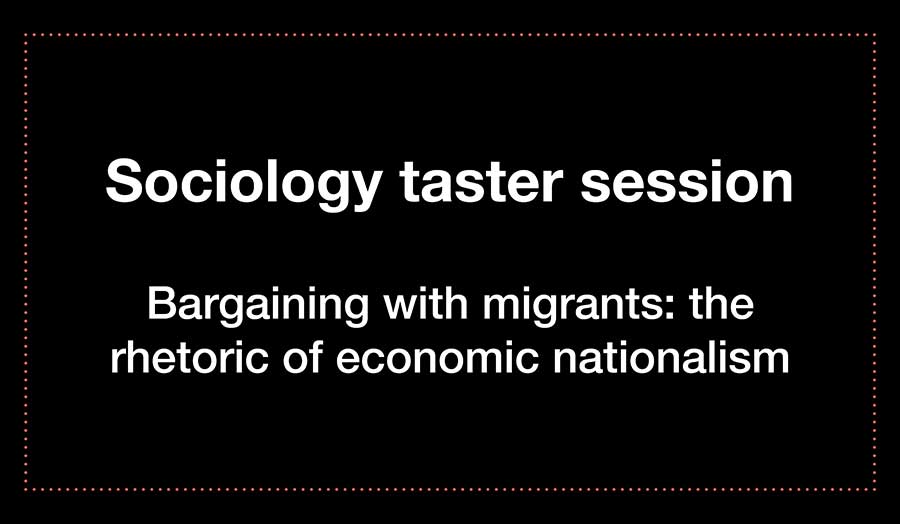
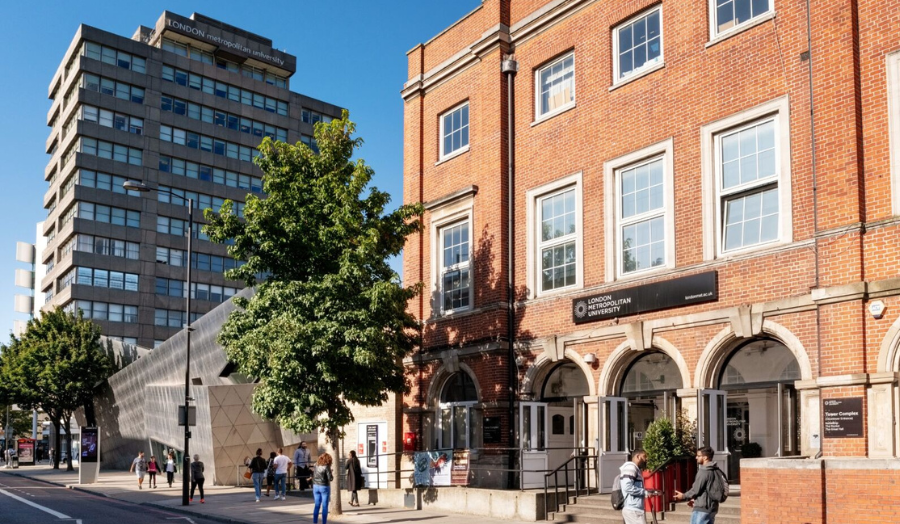
.png)

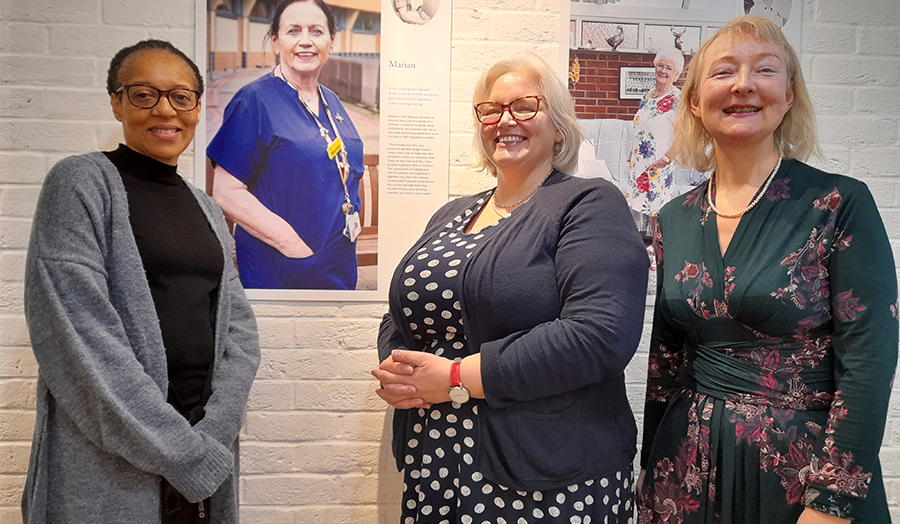
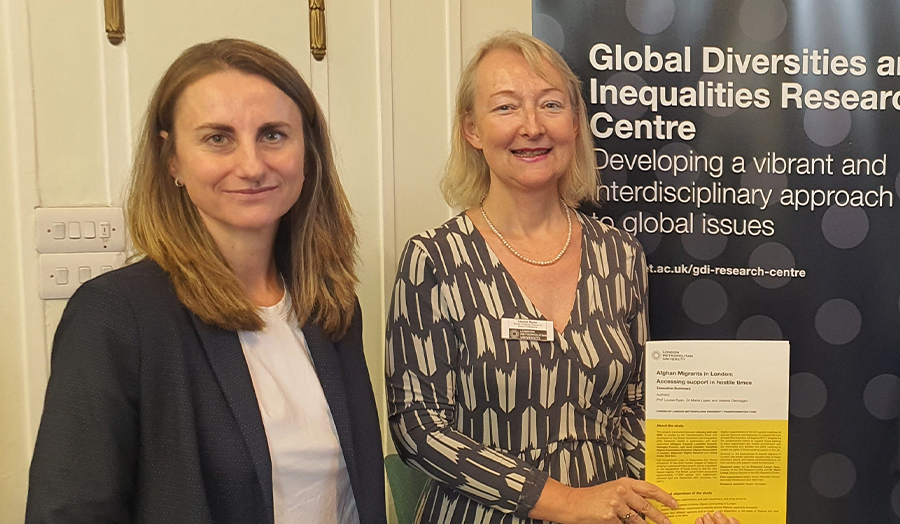
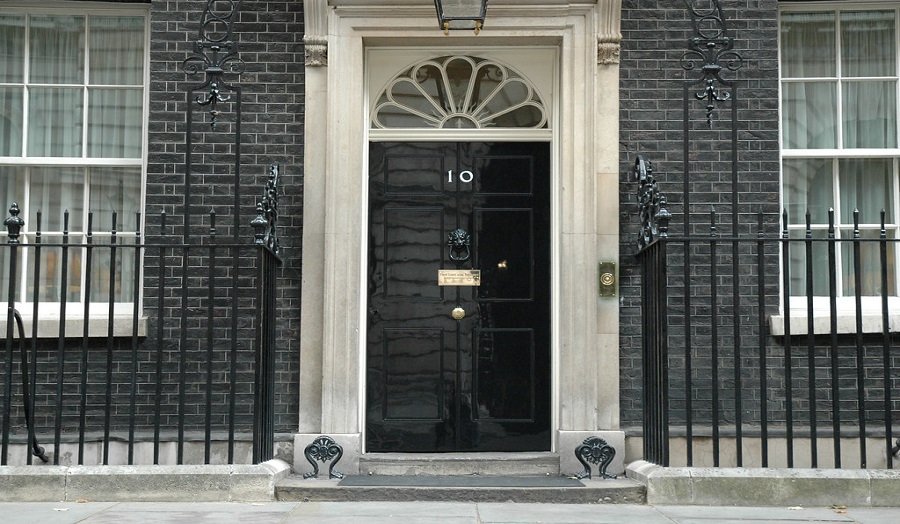
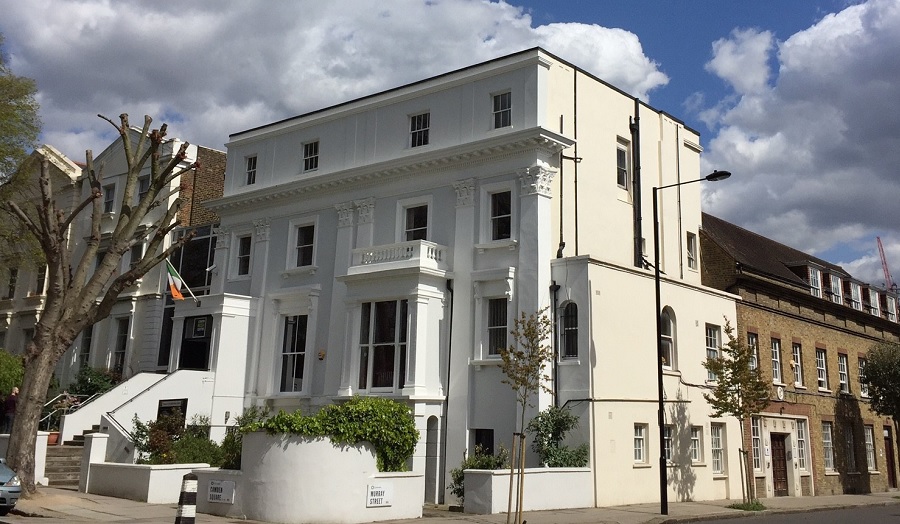
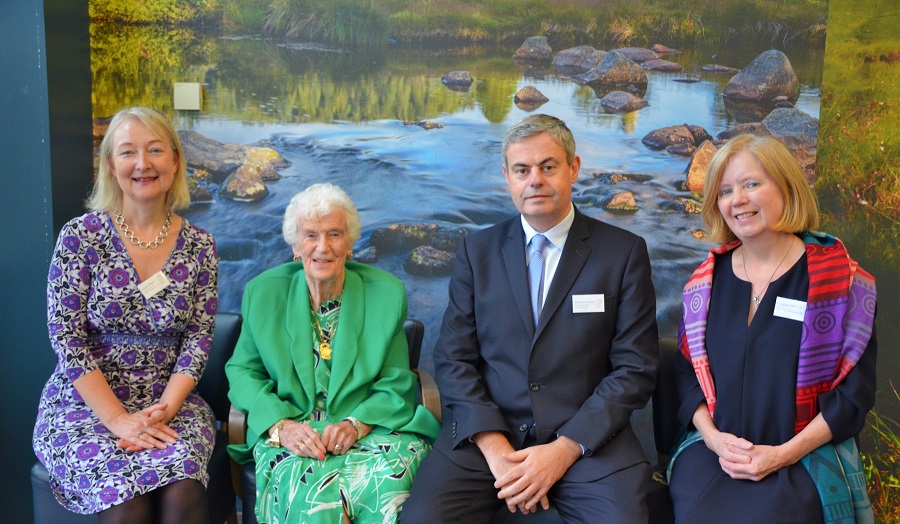



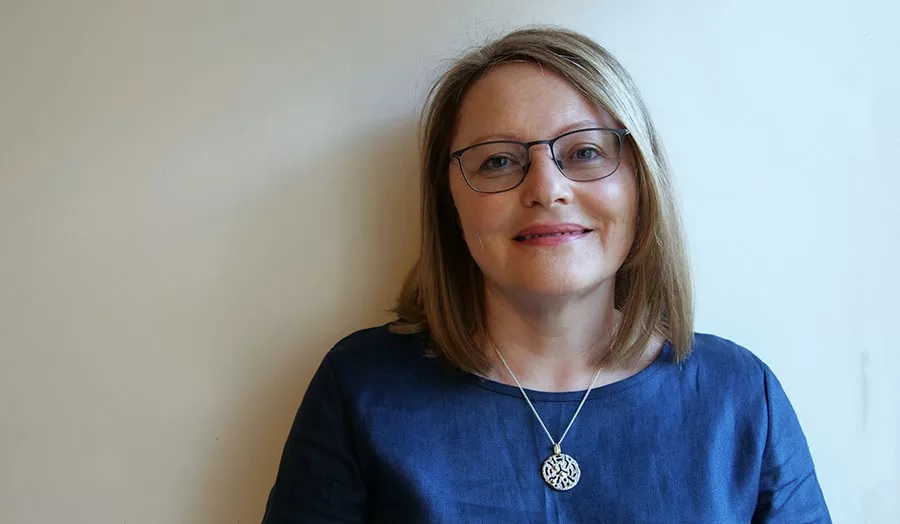

.png)




.jpg)

